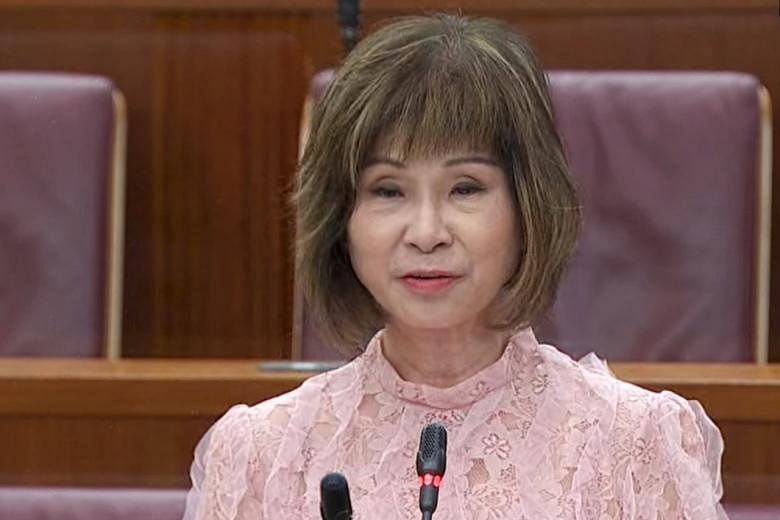SINGAPORE - The smells emitted by some Jurong factories, such as manufacturers of food flavourings and fragrances, are generally not harmful to human health, said Senior Minister of State for Sustainability and the Environment Amy Khor.
She told the House on Thursday (Oct 15) that the National Environment Agency (NEA) continuously monitors the ambient air levels of key pollutants as well as volatile organic compounds (VOCs), which are organic vapours of common industrial emissions.
"The ambient VOC levels in the western region are in the parts per billion and parts per trillion range, well within safe levels, which are mostly in the parts per million range," she added.
She said the ambient air quality in the western region was in the normal range from January to September this year, with the Pollutant Standards Index (PSI) ranging from 14 to 66 in the Good to Moderate bands.
Dr Khor, who was replying to Mr Patrick Tay (Pioneer), noted that emissions of key industrial pollutants, such as sulphur dioxide, oxides of nitrogen, carbon monoxide, dioxins and furans, are regulated under the Environmental Protection and Management Act.
Also, factories are required to install pollution control equipment to ensure their emissions are properly treated before discharge, she added.
Further, industries with processes that emit higher levels of air pollutants are required to engage accredited surveyors to conduct source emission testing and submit the test reports to NEA regularly.
NEA also conducts about 150 inspections every year at factories in the Jurong area, she added.
Mr Tay said he had received complaints from Pioneer residents about chemical smells and odours coming from the nearby factory areas.
He suggested that NEA conduct regular checks on the air quality at Housing Board blocks near the factories, rather than at the industrial area itself.
He also asked, among other things, if NEA could be more proactive and engage companies and businesses in the area when fumes and odours are detected.
Dr Khor replied: "If it is distinctive and we can trace it to a specific factory, we will engage the factory and advise them to implement smell mitigation measures.
"Over the years, quite a number of these factories have been implementing or have implemented smell mitigation measures, for instance, scrubbers and odour control systems, dispersion fans. And some of them will also moderate their operations in order to mitigate the smells."
She said checks on recently reported incidents did not reveal unsafe or elevated levels of air pollutants.


